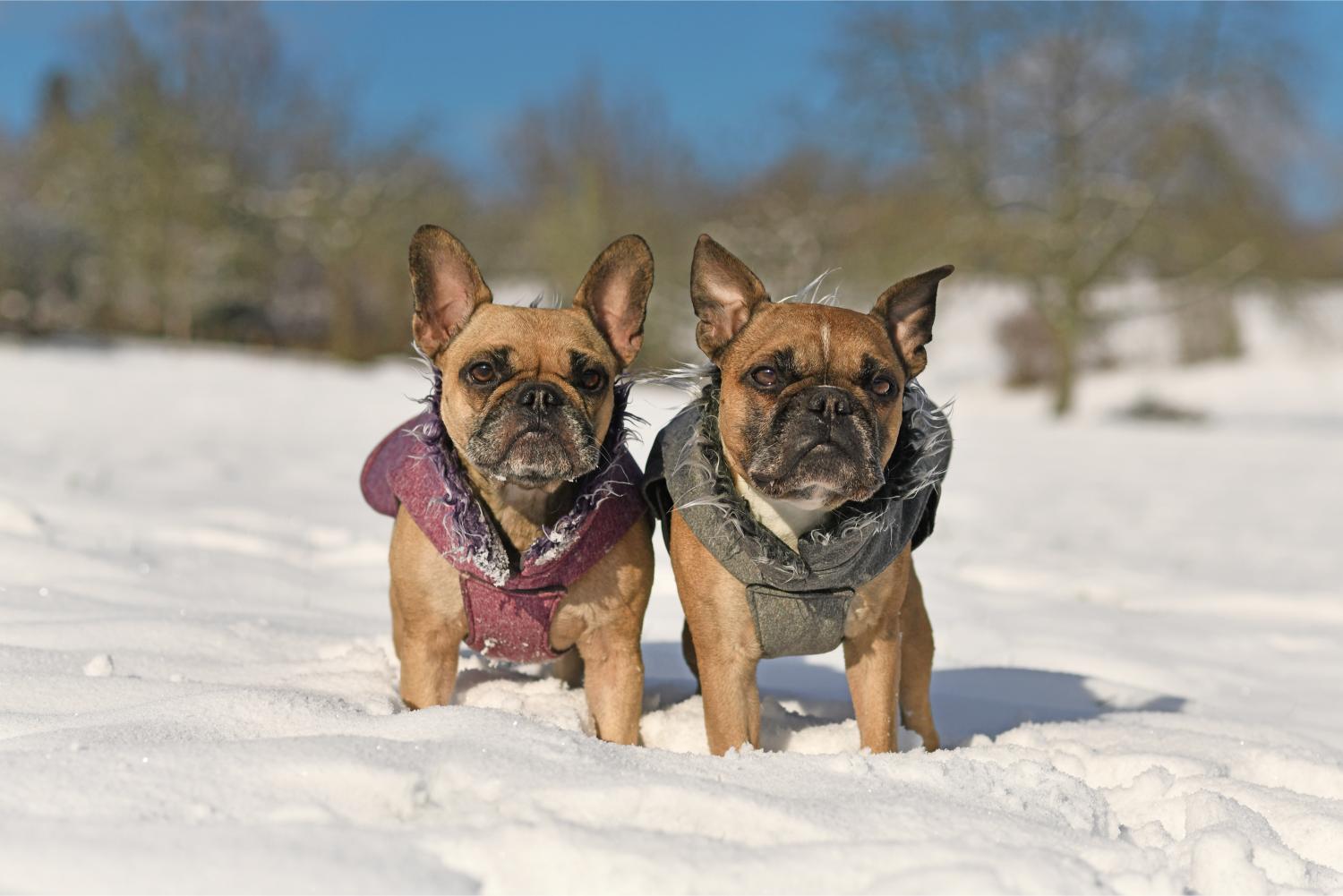Winter Dangers for Pets

Our winter climate is on brand with long stretches of rain, cold wind, and overcast conditions. With a little extra preparation and consideration, pets can successfully navigate the myriad of challenges related to the season. Our winter weather tips aim to keep them warm, dry, safe and comfortable regardless of the season’s various risks and inconveniences.
Winters in Oregon
Whether you stay close to home or you commit to snowshoeing near Mount Hood, cold temperatures can create, or exacerbate, certain health problems in pets. It is imperative that a pet maintain a proper, consistent body temperature. Exposure to very cold temperatures can lead to frostbite, hypothermia, and even cardiac arrest.
Provide your pet with insulating clothing, waterproof boots, and limit their time outside in extreme coldness. Small, short-haired pets, young animals, and seniors can feel the effects of the chilly weather much faster and more intensely than others. Be sure to monitor their time, watch for any adverse reactions, and increase the appeal of their indoor environment (yummy snacks, new toys, fun games, etc.).
Identification and Tracking
Snowy, icy conditions can make it harder for animals to track scent. Be sure that your pet’s ID tags are legible and current. Affix their collar so it is snug (not tight), and check on their microchip information. This can go a long way if your pet ever escapes or wanders off on a cold winter night.
Poisonings
Even after the abundant risks of holiday foods subside (such as chocolate, xylitol, alcohol, and more), there are significant threats to winter pet safety in the form of:
- Antifreeze
- Chemical de-icers
- Hand/foot warmers
- Rodenticides
Always clean up leaks from your car or inside the garage, and train your pet not to drink from puddles that collect on the street.
We recommend washing your pet’s paws when they come inside after a walk, or train them to exercise in insulating shoes. Do not allow them to lick their feet after any time outside during winter, keep their paws free of hair to increase grip, and inspect their nails for any breakage.
Antifreeze and other chemical poisonings require immediate veterinary testing and treatment.
Diet and Hydration
The winter is famous for causing weight gain in pets and people alike. Be sure to maintain the correct portions for their age, current weight, and activity level, but be aware that they may need more calories in a day to maintain proper internal body temperature. Adequate water intake can reduce the effects of the cold by aiding in circulation. Keep an eye on coat quality, as malnutrition and dehydration can be linked to dry skin and dull coat quality.
Pets and Winter Warmth
It is natural for pets to seek heat near fireplaces, space heaters, vents, on heated blankets, and even next to the engine inside cars. There are burn and fire risks related to these options, so please only use them when you can supervise your pet. Always bang on the hood of the car during winter before turning the ignition.
If you have any questions about your pet’s health and safety this winter, please reach out to us at (503) 498-8506. Our team at Amberglen Pet Care is always here to help.
